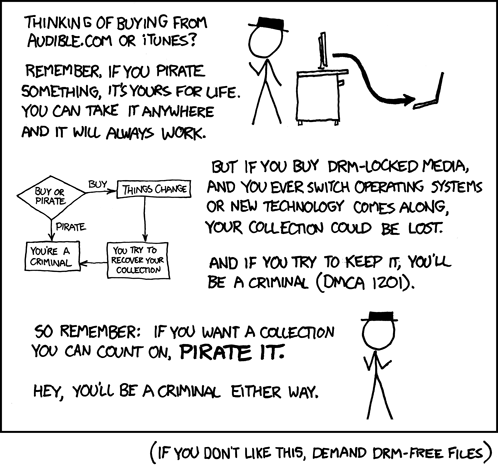While we were all looking the other way, congress overwhelmingly passed and the president signed the PRO-IP(Prioritizing Resources and Organization for Intellectual Property) act.... You know, the bill that creates a new federal office for the "copyright czar"- who basically sounds like a government tool of the recording and movie industries.
If the acronym alone isn't enough to convince you that it's a great bill consider the following benefits cited by its supporters:Who knew that haranguing petty file sharers will create jobs, save the economy, and fight terrorism?In addition to creating hundreds of thousands of new jobs (says the Copyright Alliance) and boosting our economy at this "critical juncture" (says the RIAA), the PRO-IP Act also has the happy benefit of hurting terrorists. As the White House noted when Bush signed the bill, "Terrorist networks use counterfeit sales to finance their operations."
More background: Copyright Czar is Born
Even more background.





 Reply With Quote
Reply With Quote























 If it was simply the price, most would pay.
If it was simply the price, most would pay.




Bookmarks